7. Ferrari (2023)
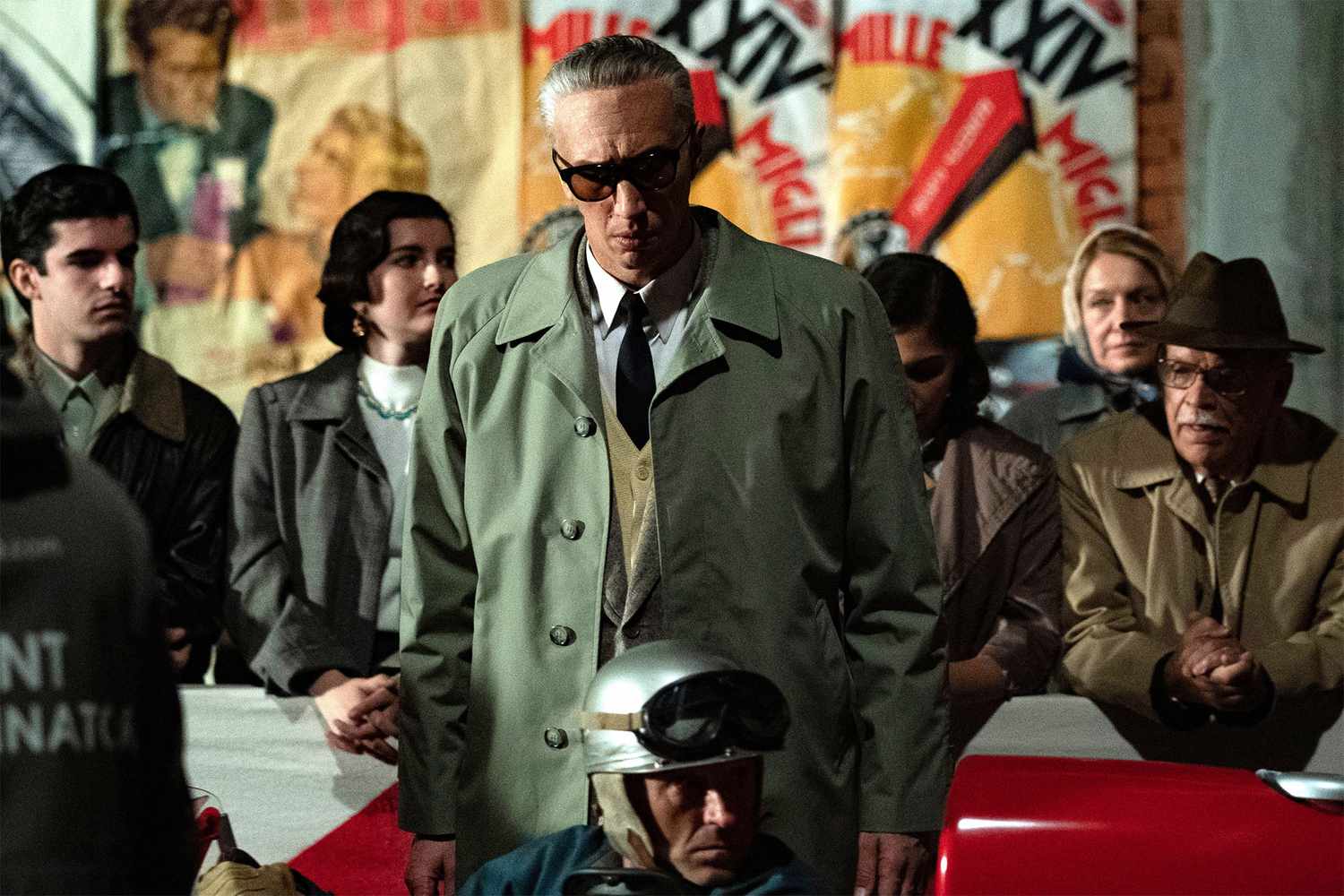
The fact that Mann chose Brock Yates’ authoritative biography of Enzo Ferrari for adaptation barely came as a surprise to anyone who’d already flipped through its pages: In pulling us headlong into a turbulent time in the life of the legendary Italian automaker during the summer of 1957, last year’s “Ferrari” proved an ideal match to the veteran director’s pet interests and obsessions as the latest chapter in a career-long examination of tortured masculinity.
Fresh off his turn as Maurizio Gucci in 2021, Adam Driver returned to the ‘Bel Paese’ to step into the shoes of yet another 20th-century patriarch of Italian descent struggling to balance his professional duties with his day-to-day responsibilities at home. With his waning car factory on the verge of bankruptcy and increasingly eclipsed by arch-nemesis Maserati, Ferrari puts all his chips on the upcoming cross-country Mille Miglia race, while still reeling off the devastating death of his 13-year-old son with his wife (a stunning Penelope Cruz) and mulling over whether to claim his extramarital son with his name or not.
Just when the domestic melodrama seems to have run out of steam, Mann pulls you back in with a pulse-pounding thousand-mile car race sequence that immediately gets your adrenaline juices pumping and cunningly leverages your expectations to drive home the central thesis of his entire career: men will literally lose themselves in their work and knowingly put their lives at risk to pursue their goals before going to therapy.
6. Manhunter (1986)
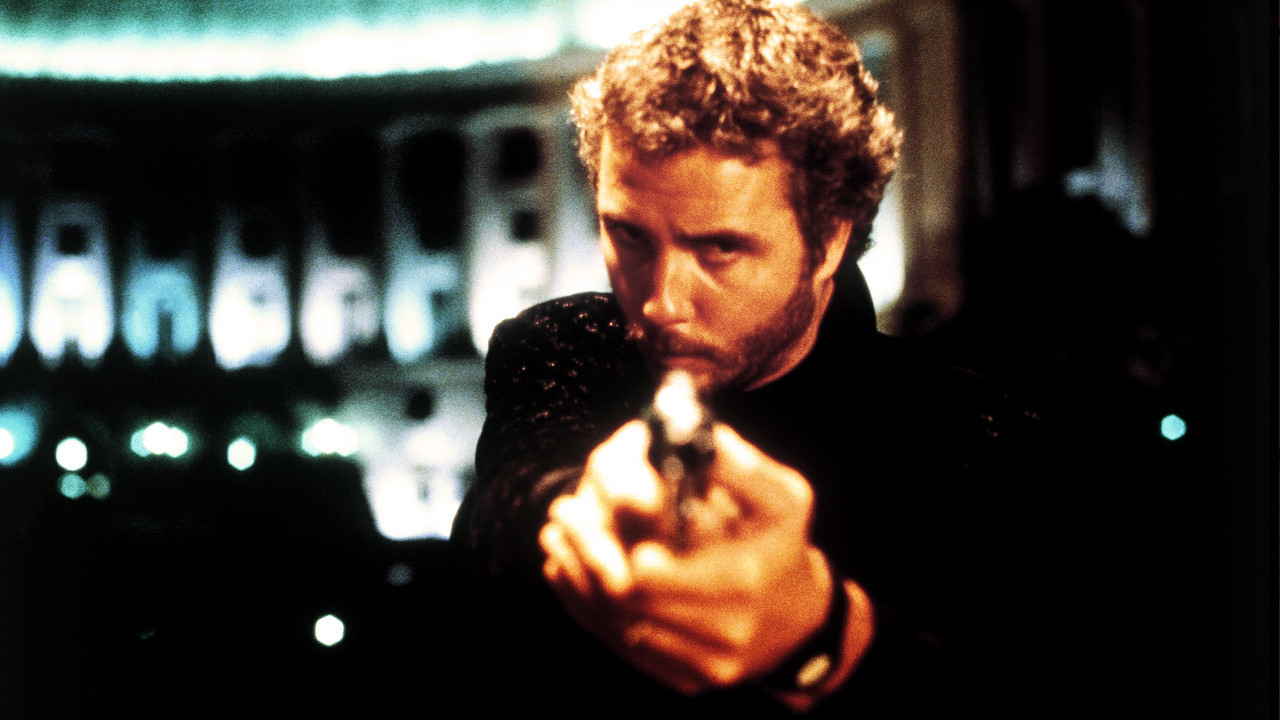
Though his mid-’80s iteration would fade over time and eventually be overshadowed in cinema history books and pop culture at large by the Jonathan Demme-directed “The Silence of the Lambs” that swept the Oscars in 1991, Mann will always be able to take pride in being the first to introduce moviegoers to Dr. Hannibal Lecter, having helmed the original onscreen adaptation of the bestselling mystery saga by Thomas Harris five years prior.
Future “Succession” alumnus Brian Cox’s performance stepping into the shoes of the now-iconic cannibal serial killer didn’t win a treasure trove of accolades but is nothing to scoff at, though it’s William Petersen holding the fort down this time around as the resourceful but guilt-ridden FBI agent who put Lecter behind bars years ago and must now reckon with the moral fault lines of his particular line of work while on a hunt for a new serial-killing psycho perp (Tom Noonan). The source material is a perfect match for Mann’s morbid sensibilities and career-long obsession with pulling audiences headlong into the minds of criminal masterminds, making “Manhunter” a solid entry point to his filmography.
5. Miami Vice (2006)
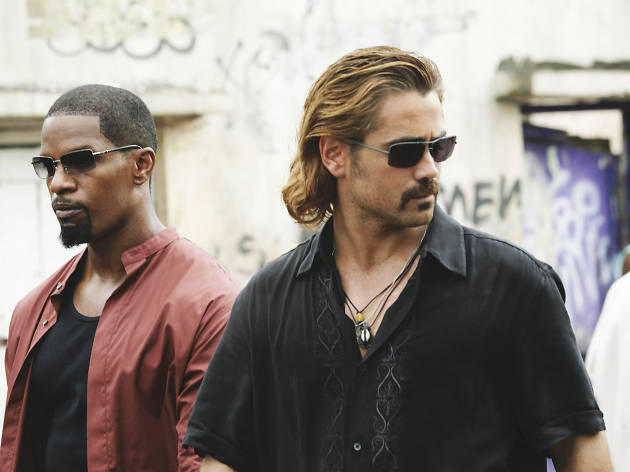
An industry-wide trailblazer who always marched to the beat of his own drum, Michael Mann was among the earliest American directors to move away from celluloid to embrace digital at the turn of the century, expertly mining the grainy aesthetic of early digital cinematography to ground his gritty crime thrillers in a way that traditional filmmaking tools simply could not.
Of all his early brushes with the digital format, Mann’s belated big-screen remake of his own 1980s hit TV series of the same name starring Colin Farrell and Jamie Foxx as a duo of mojito-loving vice detectives going deep undercover to bust an international cocaine smuggling ring remains the most interesting and divisive to date. The stark departure from the established visual aesthetic that’d become synonymous with the source material was a tough pill to swallow for pre-existing fans at the time, though the film has slowly been reappraised and many consider it now to be a fascinating time capsule of the early-aughts.
4. Collateral (2004)
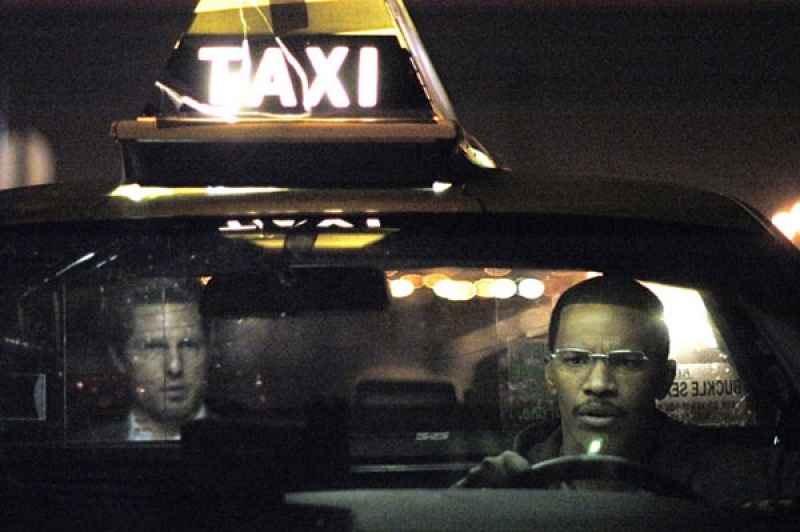
After a shocking career pivot that saw the action-movie figurehead leave his comfort zone to take a stab at prestige Oscar-friendly fare in 2001 with “Ali”, Mann’s roaring comeback to his signature genre arrived with this bullet-riddled pressure cooker about a put-upon Los Angeles cab driver (Jamie Foxx) being forced at gunpoint to chauffeur a ruthless gray-haired hit man (an ice-cool Tom Cruise) all around the city’s concrete jungle throughout the course of one frenetic night.
In turning the poster boy of turn-of-the-century American cinema into an unstoppable, merciless force of nature with the highest on-screen body count outside the John Wick saga, Mann delivered one of the most subversive casting choices ever and an instantly memorable anti-hero in a movie catalog chock-full of them. And as much as we hotly anticipate every new installment in the Mission Impossible series to what crazy new stunt Cruise has miraculously pulled off this time, revisiting “Collateral” makes us wish he’d roll the dice and play against type every once in a while.
3. The Insider (1999)
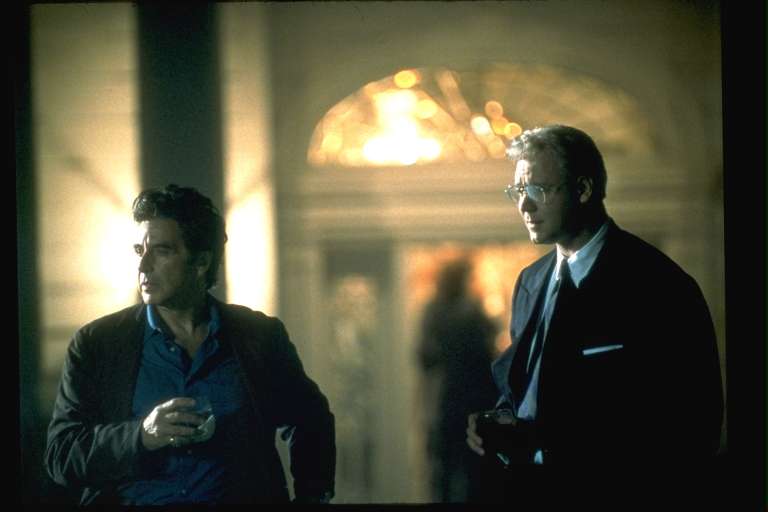
Not enough attention has been paid to this ripped-from-the-headlines legal drama with Russell Crowe’s Oscar-nominated performance at the center as a real-life research chemist called Jeffrey Wigand who decided to breach his confidentiality agreement with Brown & Williamson, completely kill his career prospects, and go live on CBS to blow the whistle on the Big Tobacco industry.
Few movies in cinema history have so candidly portrayed the weighty burden of truth-seeking as “The Insider”, which finds Crowe’s heroic everyman suddenly thrust into extraordinary circumstances and forced to pay a steep price for his honesty as he goes up against an army of profit-driven executives, buttoned-up corporate lawyers, and sold-out media heads to get his story out. In addition to Mann’s muscular direction, the film also benefits from what is perhaps the best acting turn by Al Pacino since his 1970s heydays as a hard-nosed investigative journalist who moves heaven and earth to get Wigand on his 60 minutes segment.
2. Thief (1981)
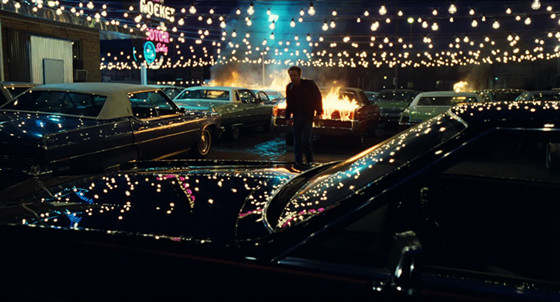
Shot on-location in the rain-slick, neon-lit streets of Chicago and aided by Tangerine Dream’s synthy soundtrack, a case for Mann’s early-career breakthrough as being the purest distillation of Mann’s unmistakable brand of filmmaking can certainly be made. However, the biggest draw here has to be the career-defining performance by the late James Caan as a seasoned professional safecracker called Frank who yearns to leave his criminal life behind and start afresh with her sweetheart (Tuesday Weld) but finds himself reluctantly signing up for one more score before calling it quits.
The legendary actor of “The Godfather” fame brings a worn gravitas to the role that lends “Thief” a gritty, melancholy feel that can elude even Mann’s best work as we watch his doomed character tipped over the edge after running away with almost half a million dollars’ worth in stolen diamonds while trying to fend off crooked cops, former associates, and local thugs. Many of the hallmarks that Mann would revisit further ahead in his career were first introduced here, making “Thief” a solid onramp for newcomers and the skeleton key to his entire oeuvre.
1. Heat (1995)
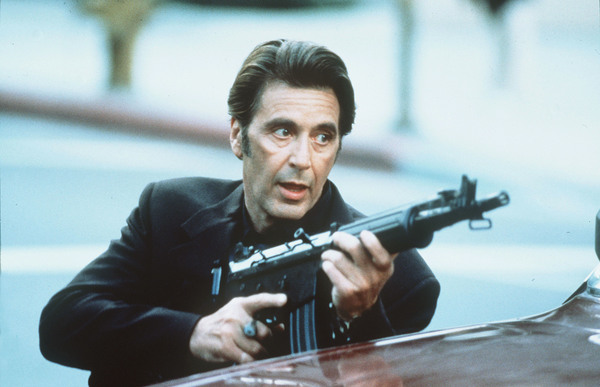
The appeal is quite simple when you get down to it: What if we put two proper heavyweight titans in Al Pacino and Robert De Niro in the same room, and also had them going toe to toe and laying it all on the line for three straight hours in an exhilarating game of cops and robbers under the masterful direction of the best action filmmaker in all American cinema?
Often imitated but never replicated, Mann’s closest brush with perfection ticks off all the director’s itches and trademark obsessions by observing the curious interplay between two highly skilled, obsessive masters of their craft — a career criminal and a homicide detective hot on his trail — who respect each other and are also kind of soulmates despite being on opposite sides of the law. A high-water mark in American cinema and the pinnacle achievement in Mann’s distinguished career, its influence is felt everywhere in today’s pop culture from Christopher Nolan’s Batman trilogy to the Grand Theft Auto gaming series. As far as “Heat” is concerned, the action is the juice indeed.